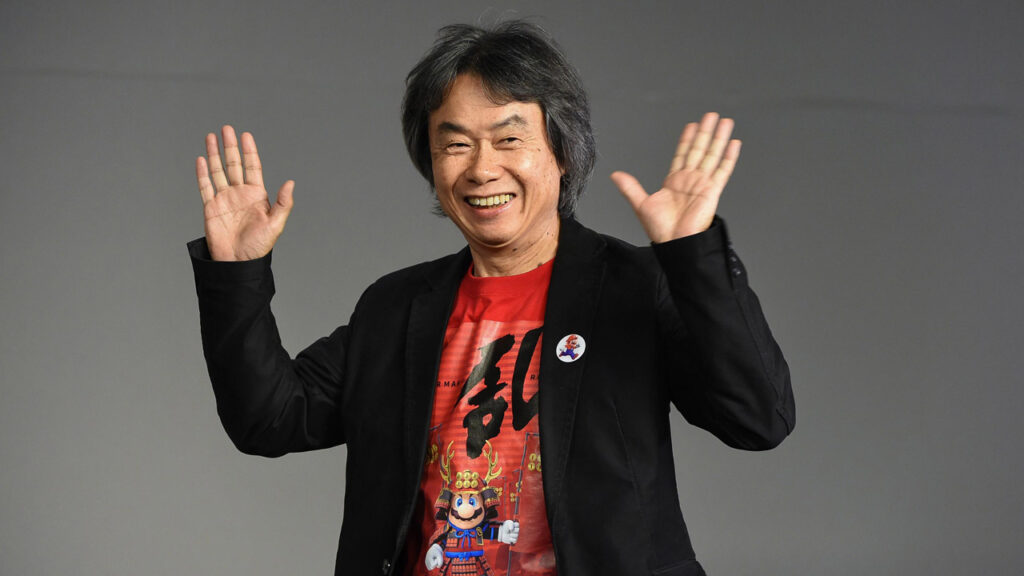Shigeru Miyamoto Discusses Violence in Games, Design Philosphies, and Promoting Kindness in Recent Interview
Posted on December 28 2020 by Bryan King

In a recent interview with Simon Parkin of The New Yorker, legendary game designer Shigeru Miyamoto sat down to discuss a variety of topics ranging from his tenure at Nintendo to his outlook on life itself. It’s hard to believe that he turned 68 this past November and shows no signs of slowing down anytime soon.
From creating iconic franchises like Super Mario Bros. and The Legend of Zelda to his involvement with the upcoming opening of Super Nintendo World at Universal Studios Japan, Miyamoto has become comparable to the late Walt Disney. The worlds he’s created have inspired millions of players for decades, and it’s here that we get some insight into how he views the developmental process.
When asked if creating a game world brings with it a realization of reality and rules within that world, Miyamoto had this to say:
Parkin: I’ve always thought that there’s something divine about game-making. You’re conjuring a world, defining the rules of a reality, and then placing little characters into that reality. Has being a game-maker ever led you to ponder the rules of this universe?
Miyamoto: Not particularly, but when I’m trying to create a game world, I like to work on action, movement. Within that experience, there needs to be a mix between what is real and what is not. There has to be a connection to our real-world experience, so that when you make a move in the game it feels familiar but also, somehow, different. To achieve that harmony, you need a dash of truth and a big lie to go along with it. That’s the kind of game I try to create. You take things you’ve experienced in your life, sensations or feelings, and then try to conjure them in the game world.
In recent times, it was revealed that Miyamoto gave a recommendation to the team behind Goldeneye, the seminal Nintendo 64 shooter. He proposed that rather than have James Bond kill his opposition, he visit them in the hospital in the end. When asked about the continued fascination gamers have with shooting-related violence, Miyamoto replied:
Parkin: There’s a story about you that’s been widely shared recently. It’s about the Nintendo 64 game Goldeneye, which was based on the James Bond film. The game’s director, Martin Hollis, told me that, when you first tested the game, you expressed sadness at the number of people Bond shoots down, and suggested to him that, during the end credits, he make the player visit each victim in their hospital bed. It’s a sweet story that says something about who you are, and what you believe games should be. How do you feel about the fact that the medium has come to be dominated by guns and shooting?
Miyamoto: I think humans are wired to experience joy when we throw a ball and hit a target, for example. That’s human nature. But, when it comes to video games, I have some resistance to focussing on this single source of pleasure. As human beings, we have many ways to experience fun. Ideally, game designers would explore those other ways. I don’t think it’s necessarily bad that there are studios that really home in on that simple mechanic, but it’s not ideal to have everybody doing it just because that kind of game sells well. It would be great if developers found new ways to elicit joy in their players.
Beyond that, I also resist the idea that it’s O.K. to simply kill all monsters. Even monsters have a motive, and a reason for why they are the way they are. This is something I have thought about a lot. Say you have a scene in which a battleship sinks. When you look at it from the outside, it might be a symbol of victory in battle. But a filmmaker or writer might shift perspective to the people on the ship, to enable the viewer to see, close up, the human impact of the action. It would be great if video-game makers took more steps to shift the perspective, instead of always viewing a scene from the most obvious angle.
Finally, when asked what he would change in the world were he given designing duties over it, he answered:
Parkin: What would you change in this world, if you could design it?
Miyamoto: I wish I could make it so that people were more thoughtful and kind toward each other. It’s something that I think about a lot as I move through life. In Japan, for example, we have priority seating on train carriages, for people who are elderly or people with a disability. If the train is relatively empty, sometimes you’ll see young people sit in these seats. If I were to say something, they’d probably tell me: ‘But the train is empty, what’s the issue?’ But if I were a person with a disability and I saw people sitting there, I might not want to ask them to move. I wouldn’t want to be annoying.
I wish we were all a little more compassionate in these small ways. If there was a way to design the world that discouraged selfishness, that would be a change I would make.
I believe that we can all get behind that last sentiment. As previously mentioned, this has been a trying year for people all over the world. I think now more than ever we should embrace Miyamoto-san’s belief in being more compassionate toward one another. It would go a long way toward getting us through these trying times.
What do you think? Were you surprised by any of Miyamoto’s responses? Let us know in the comments below!
Source: The New Yorker



